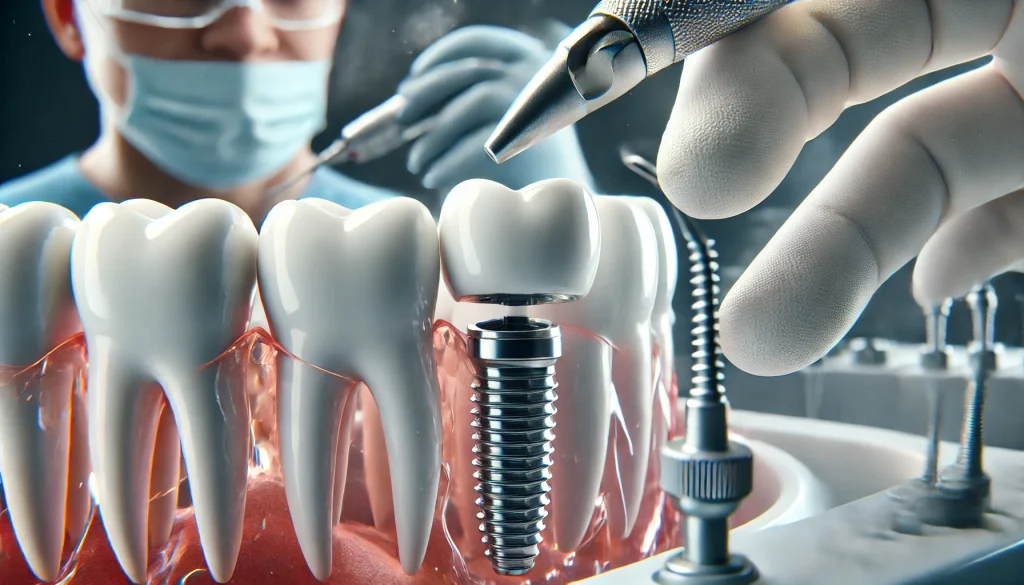If you’ve ever considered dental implants, you know they can be a game-changer for your smile and dental health. But how much will it set you back if you don’t have insurance? The cost of a single tooth implant cost without insurance is an essential factor to consider, especially for those looking for long-term solutions to missing teeth. Whether you’ve lost a tooth due to injury, decay, or other reasons, knowing the financial investment upfront is key to making an informed decision. Let’s explore what influences the price and what you can expect when seeking a tooth implant without insurance.
What is a Single Tooth Implant?
A single tooth implant is a dental procedure where a titanium post is surgically inserted into the jawbone to replace a missing tooth. It functions as a natural tooth root, providing a sturdy foundation for an artificial tooth (crown). Unlike dentures or bridges, implants offer a more permanent solution that mimics the look, feel, and function of your natural teeth. However, the single tooth implant cost without insurance can vary widely depending on several factors such as location, dental professional expertise, and the complexity of the procedure.
Dental implants have become a popular choice due to their durability and ability to integrate seamlessly with your existing teeth. They prevent bone loss in the jaw, which is a common issue with tooth loss, and ensure that adjacent teeth remain stable. This long-term benefit is one reason why many opt for this procedure, even though it may come at a significant upfront cost.
Breaking Down the Costs
The cost of a single tooth implant without insurance is typically divided into several components. These include:
1. Initial Consultation: Before the procedure begins, you’ll need a thorough dental examination. This includes X-rays or 3D imaging to assess the condition of your jawbone. The consultation fees can range from $100 to $300, depending on your location and the complexity of your case.
2. Implant Surgery: The implant itself, usually made of titanium, is the next significant cost. This phase involves placing the implant into your jawbone. The implant surgery can range from $1,500 to $3,000 per tooth.
3. Abutment Placement: Once the implant has fused with your jawbone, a connector (called an abutment) is attached to hold the crown in place. The cost of the abutment and its placement can add another $300 to $500 to the overall price.
4. Crown Fabrication and Placement: The crown is the visible part of the implant, designed to match the appearance of your natural teeth. Custom-made crowns can cost between $1,000 and $3,000.
When all is said and done, the total cost for a single tooth implant without insurance can range from $3,000 to $6,000, with some cases exceeding this range if additional procedures like bone grafts are required.
Factors That Influence the Cost
There are several factors that can influence the overall cost of a single tooth implant without insurance. These include:
1. Location: The cost of living and dental care in your area plays a significant role in determining prices. Major metropolitan areas tend to have higher prices than rural locations.
2. Dentist’s Expertise: More experienced dental professionals with specialized training in implants may charge higher fees. However, their expertise often translates into more successful outcomes.
3. Type of Implant: Not all dental implants are the same. The quality of materials and the brand of implant can impact the cost. Some brands are designed to last longer or integrate more seamlessly with the jawbone, and these tend to be more expensive.
4. Additional Procedures: If you require a bone graft, sinus lift, or other preparatory procedures, this will increase the cost. Bone grafting, for instance, can add $200 to $2,500 to the final bill, depending on the complexity.
Are There Alternatives to Reduce the Cost?
While the single tooth implant cost without insurance can seem steep, there are options to make it more affordable. Some of these include:
1. Dental Schools: Many dental schools offer discounted rates on implants as students perform the procedures under the supervision of experienced professionals. This can significantly reduce the cost.
2. Payment Plans: Many dental offices offer payment plans that allow you to pay for the procedure over time, rather than all at once. This can make it easier to manage the financial burden.
3. Discount Dental Plans: Some patients choose to enroll in discount dental plans, which provide reduced rates on dental procedures. While not insurance, these plans can save you a percentage on dental services, including implants.
4. Negotiating Costs: In some cases, it may be possible to negotiate with your dentist to reduce the overall cost, especially if you are paying out of pocket.
The Long-Term Value of Dental Implants
Though the initial cost of a single tooth implant without insurance can be intimidating, it’s important to consider the long-term benefits. Dental implants can last a lifetime with proper care, making them a cost-effective solution compared to bridges or dentures, which often require replacement every 5 to 10 years.
Implants also help preserve your jawbone, preventing the bone loss that often occurs when a tooth is missing for an extended period. This can save you from future dental issues and associated costs. Moreover, implants don’t require the same maintenance as dentures, which can incur ongoing expenses for adjustments, cleaning supplies, or replacements.
Conclusion
The single tooth implant cost without insurance can vary greatly depending on several factors, but understanding these costs upfront can help you make an informed decision about your dental health. While it may be a significant investment, the durability, appearance, and health benefits that come with a dental implant often make it worth the expense. By considering alternative payment options and understanding what goes into the pricing, you can find a solution that works for your budget and needs.






